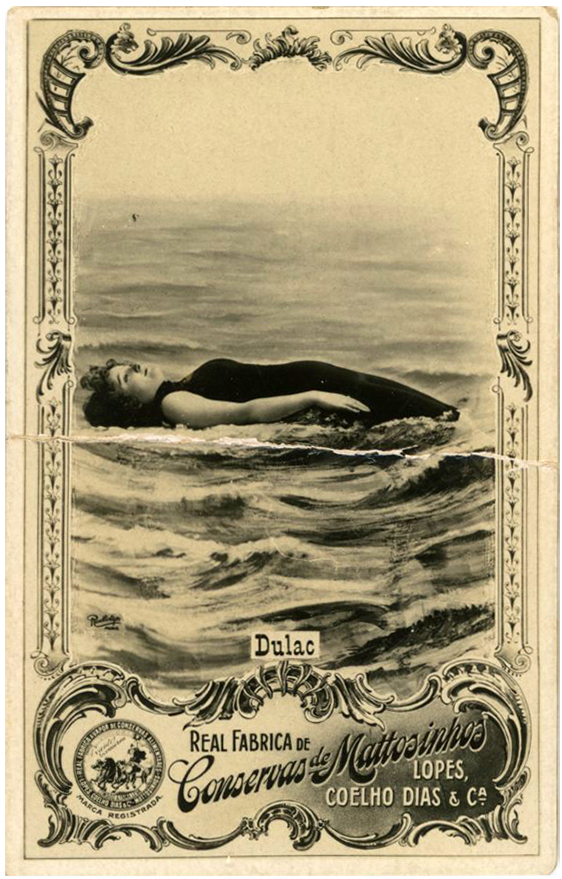Victorian Trade Cards da Real Fábrica de Conservas de Mattosinhos - Dulac
Lopes, Coelho Dias & Cª Ltda
Matosinhos – Portugal
Size 5 cm x 8 cm
Odette Dulac
Dulac was born in Aire-sur-Adour. She became a militant feminist and novelist. La houille rouge: les enfants de la violence (The Red Coal, 1916) narrated the horrors of raped and impregnated Frenchwomen at the time the First World War was being waged, in an anti-abortion polemic of triumphing French nationalism. She became a member of the Ligue des droits de femme (League for Women’s Rights).
At the start of her public career, as a singer-actress, she appeared in light opera at Antwerp in 1895 and was soon a star at the Théâtre des Bouffes Parisiens, where she appeared in André Messager’s operetta, Les p’tites Michu (1897). In London, at the Empire Theatre, she had a hit with The Honeysuckle and the Bee.
Turning her hand to modelling witty caricatures, she performed Don Juan of Boulevard X at the Salon Humouriste, Paris 1908.
Aside from La houille rouge, she published Le droit de plaisir (1908), her first novel; a feminist erotic text, Faut-il? (1919), a case of love for a mutilated soldier; Les Désexués: roman de moeurs (1924) co-authored with Charles-Etienne about the downfall of a gay man in 1920s Paris; Tel quel (1926), denouncing social and religious hypocrisy and encouraging women to speak up for themselves; and Leçons d’amour (1929).
https://en.wikipedia.org/wiki/Odette_Dulac

Victorian Trade Card
Victorian trade cards are an early form of collectible advertising. Trade cards originated in England in the 1700s with tradesmen advertising their wares. But the advent of lithography in the 1870s made it possible to mass-produce them in color, leading to a golden age from 1876 to the early 1900s when halftone printed newspaper and magazine ads became more economical. Trade cards typically had a picture on one side and an ad on the other. There were custom cards printed for specific products, and stock cards which could be used for any product. Trade cards were popular for medicines, sewing, and farm equipment, and a range of other products.

